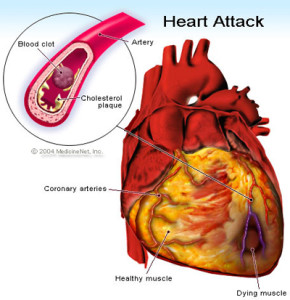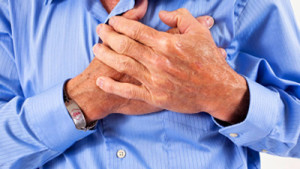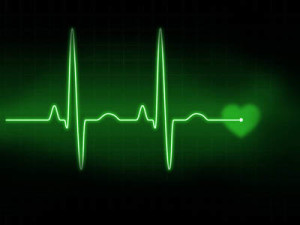Heart attack (Acute Coronary Syndrome or myocardial infarct) is a medical emergency which may lead to several serious complications and even death. It is caused by a reduction in the blood supply to the heart due to the narrowing of the vessels by cholesterol plaque. These unstable plaques might rupture and lead to subsequent blood clot formation that may completely block off the vessels.
Heart disease (cardiovascular disease/CVD) is currently the number one cause of death worldwide including in Malaysia. This is reflected by the ageing ‘baby boom’ generation which still make up the majority of world population. In Malaysia, the incidence of heart attack is around 141 per 100,000 people in a year, and causes approximately 7% in-hospital death. Furthermore, CVD contributes two and a half times more death among Malaysian women than all cancers combined.
Risk factors for heart attack are:
- Gender (male higher than female)
- Age more than 45 years of age, (female age > 55 years old or after menopause)
- Diabetes
- Cigarette smoking
- High cholesterol
- Hypertension
- Obesity
However, in recent years we are seeing increasing number of cases involving younger people, even women and even in the early 30’s. The youngest patient ever recorded to have a heart attack in Malaysia is 19 years old. This worrying trend highlights the importance to maintain normal weight, engage in regular exercise and avoid smoking; especially in those with a family history of heart disease.
A major symptom of heart attack is chest pain, which is usually described as being heavy or pressure-like. This may or may not be accompanied by numbness along the left arm and neck, nausea and vomiting. Some have even described it as feeling of “an impending doom”. Bear in mind that not all patients will experience these classic symptoms. If in doubt please seek medical attention.
Although there are numerous major advancements in the overall management of heart attack. Unfortunately, most fatalities take place prior to arrival at hospital. The most common mistake made by members of the public is the delay in seeking medical attention. They either ignore the symptoms or wait in hoping that the chest pain will subside or attribute it to other causes such as indigestion. This delay leads to more heart muscle being deprived of blood circulation and eventually irreversible heart damage sets in. Left untreated or even in those who survive heart attack, further complication such as heart failure may develop. They would commonly complain of having breathlessness on exertion or at rest.
Generally, the best principle in any medical emergency is to seek medical help at the nearest medical facility. However, given the seriousness of the disease and the complexity of the treatment, in ‘stable heart attack’ cases it is advisable to head directly to the nearest Emergency Department, instead of going to a general clinic. Should patients been brought to a clinic, in almost all cases, the clinic doctor will eventually have to refer these patients to a nearby hospital. By the time these patients arrive at the emergency department, a major amount of time had been lost.
In brief, there are three types of heart attack:
- STEMI (ST-elevation myocardial infarct)
- Non-STEMI (non ST-elevation myocardial infarct)
- Unstable angina
Note: ST elevation refers to the ST segment recorded on ECGs. A normal ECG has a P wave, QRS complex and T wave. One of the ways to classify heart attacks is by changes to the ST segment in the ECG.
Upon arrival at a hospital, depending on the types of heart attack (based on the ECG and blood test), the attending doctor will decide on the most suitable treatment for the patient. This may range from medications to procedural-based therapy such as angioplasty (surgical unblocking of a blood vessel). After stabilisation in Emergency Department, patients will be admitted into wards to receive further treatment and observation.
In unfortunate circumstances whereby heart attack is followed by cardiac arrest before reaching hospital, it is crucial for bystanders to perform CPR (not covered in this article) as this has been shown to increase the chance for survival.
For heart attack survivors, it is important to continue taking their newly prescribed medicine. Most of these medicines are to be taken life-long due to their nature of ‘stabilising’ rather than ‘curing’ the heart. With this in mind, patients must discuss with their doctors before stopping any medicine. Failure to do so might lead to disastrous consequences for example stopping Aspirin after angioplasty might lead to blockage of ‘stents’ implanted within the heart vessel.
The FIVE take home messages readers must remember:
- Although heart attacks usually manifest as pressure-like chest pain, if you are in doubt seek medical help.
- If you are relatively stable, head directly to an Emergency Department at the nearest hospital.
- Remember that “time is muscle” and the longer the victim waits, the more heart muscles are damaged and the more likely the damage becomes irreversible.
- If a victim collapses prior to reaching a hospital, CPR would increase his chances of surviving (learning CPR is easy).
- Do not stop your medications without consulting the doctor who started them.
Dr Beni Rusani is a cardiologist currently based in the heart of Kuala Lumpur. He is passionate about increasing awareness about local health related issues. Read more about him at The Team Page.
References:
- Management of Unstable angina / non STEMI. Malaysia Clinical practice guideline. Ministry of Health Malaysia; 2011.
- Prevention of cardiovascular disease in women. Malaysia Clinical practice guideline. Ministry of Health Malaysia; 2008.
[This article belongs to The Malaysian Medical Gazette. Any republication (online or offline) without written permission from The Malaysian Medical Gazette is prohibited.]




Interesting and very informative article doctor Beni! Thanks for the info.